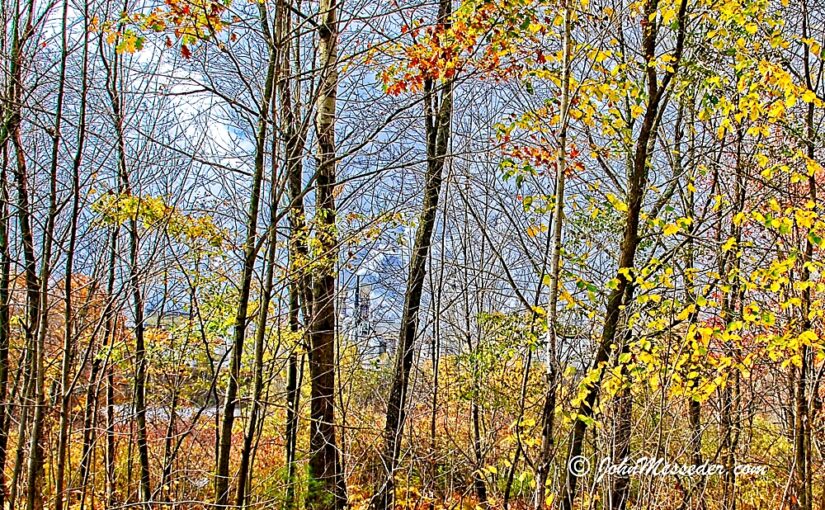I sit looking out my upstairs window at four trees poking through mostly lawn. Last year, we planted a 4×16-foot wildflower plot on a piece of that lawn. This year the strip will be 4×100, roughly — a divider between our suburban lot and the one next to ours and, we hope, a larger magnet for butterflies.
It might seem as though I’m bragging, but …
A friend recently commented that “as good of environmentalists we aspire to be, we all have skeletons in our environmental closet.”
For instance: I drive nearly everywhere, then think how great I am because I didn’t drive 17 times around the Walmart parking lot to anchor the vehicle one space closer to the door.
A few years ago, I lusted after — and eventually bought — a full-size Ford Bronco. It was a time of my life when I told a friend, “If I can see over the roof, it’s not big enough.” It had a V-8 motor capable of doing more work than I imagined needing done, and burned gas as though it was doing all that work.
The car I now drive gets half again as many miles from a gallon of gasoline as the Bronco. I have a perfectly serviceable bicycle with a saddlebag that I do not pedal for minor shopping trips one mile to the store.
I was raised outside a mill town, three miles to school. Upwind. Uphill. Both ways. The town and its two-room schoolhouse were in a narrow north-south valley lined on both sides by mountains not unlike those I now spend much of my time exploring a few miles west of my current home. Almost immediately out of school, I turned right and headed uphill, due west over three hills, then around the south side of a 500-acre lake. Winter winds gained force down the lake and then funneled into the blast against which I pushed toward home.
I did not know about the environment, though one year Mrs. McCluskey had us place a mushroom in a quart Mason Jar. The jar sat on a bookshelf next to the door. Flies got in and laid eggs that became larvae that devoured the mushroom. End of science lesson. At least my memory of it.
I remember a woman named Rachel Carson being cussed by many local adults for writing a book about killing birds someplace; her efforts would make life difficult for farmers around where I lived. End of another science lesson.
There were no computers in those days, at least for school kids. A half-decade into a U.S. Navy career, I bought my first calculator, a four-function device — add, subtract, multiply and divide — about the size of four packs of cigarettes. Later, the Navy introduced me to more sophisticated, huger machines. I was hooked on what eventually became euphemized as “technology.”
The world in which I live relies on that technology. I could write with a pencil, but it takes too long and no one would read it. Most folks, including me, read words on a smartphone, tablet, laptop or desktop computer and check email and message friends on a cellphone — all of them powered by electricity generated largely by burning the remains of long dead carbon-based life forms.
Paradoxically, the technology is revealing the damage it is doing to our environment. I wonder how it will react when our grandkids take it on.

Nice writing. Interesting to consider what we do to our planet and animals, insects and plants on it. And as civilized humans, things we do to each other.
On a different level it is what all animals, insects and plants do and have always done to other animals, insects and plants. They fight for territory, fight for dominance, fight for food. Sometimes they don’t realize they are doing this, it is just natural activity and part of survival. Eventually, the mix of those entities achieves a balance. Humans are worse because we also fight over viewpoints, ideals, greed, religion etc.
We regard ourselves as being at the top of those entities, and establish rules of engagement, boundaries, rights, laws, punishments, standards, mechanical and electronic aids.
Yet humans don’t achieve a balance, we breed beyond where a balance is achievable. It is time there were fewer humans on the planet.